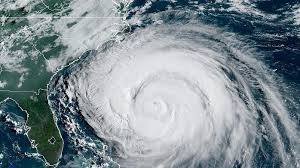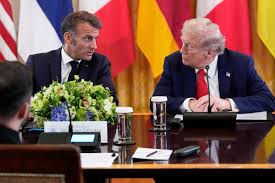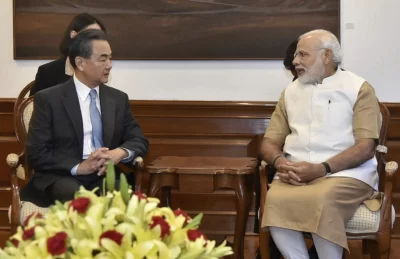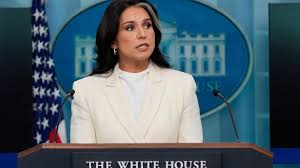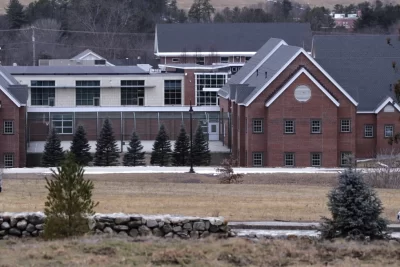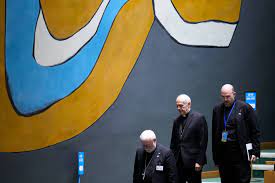
It’s almost the end of the U.N. General Assembly high-level meeting that brings world leaders together at U.N. headquarters in New York. Here are the highlights of what happened Saturday at the United Nations and what to keep an eye on Tuesday, the last day (Monday’s off for Yom Kippur).
WHAT HAPPENED AT THE UN GENERAL ASSEMBLY ON SATURDAY
— Russian Foreign Minister Sergey Lavrov made no mention of his country’s war in Ukraine from the dais, but was naturally asked about it in a subsequent press conference. He had harsh words for the United States and the West in both places.
— Armenia and Azerbaijan both spoke at the General Debate. Both critiqued the international community’s response to the situation in Nagorno-Karabakh, albeit for different reasons. Neither, interestingly, made use of the right of reply after speeches concluded Saturday night (only Iran and the United Arab Emirates did).
— As Venezuela’s foreign minister spoke at the United Nations, The Associated Press visited the hotel just blocks away that’s become a center for asylum-seekers from the country.
— Speech count: 30
WHAT TO EXPECT AT THE UN GENERAL ASSEMBLY ON THE LAST DAY
— Key speeches: representatives from India, Syria, North Korea, Canada and Morocco
— Canada and India’s percolating diplomatic row over the killing of a Canadian citizen of Indian origin — and Sikh separatist — could burst into the General Assembly Hall, with each country’s representative scheduled to speak Tuesday.
— Morocco, which recently experienced its worst earthquake in decades, is on the schedule as the very last speaker.
— The truncated last day could be extended by last-minute exercises of the right of reply. Technically, any of the 193 member states could invoke the right about any of the speeches delivered over the course of the six days. India and Pakistan have already traded words once so far, but they could go again, especially after Pakistan’s interim prime minister denounced India over Kashmir in an interview with the AP.
QUOTABLE
“People will respect you naturally if you’re doing well as a leader and they see your people are not suffering. You don’t beg people to respect or partner with you.”
— Grace Agbu, a Nigerian citizen. At the United Nations, African leaders have been clear that they want a seat at the global table, especially considering the continent’s ascendance. But challenges remain, including domestic divisions and chronic corruption.
NUMBER OF THE DAY
0: Geese spotted on the placid U.N. grounds, despite signs entreating wanderers not to feed the often hostile birds.

